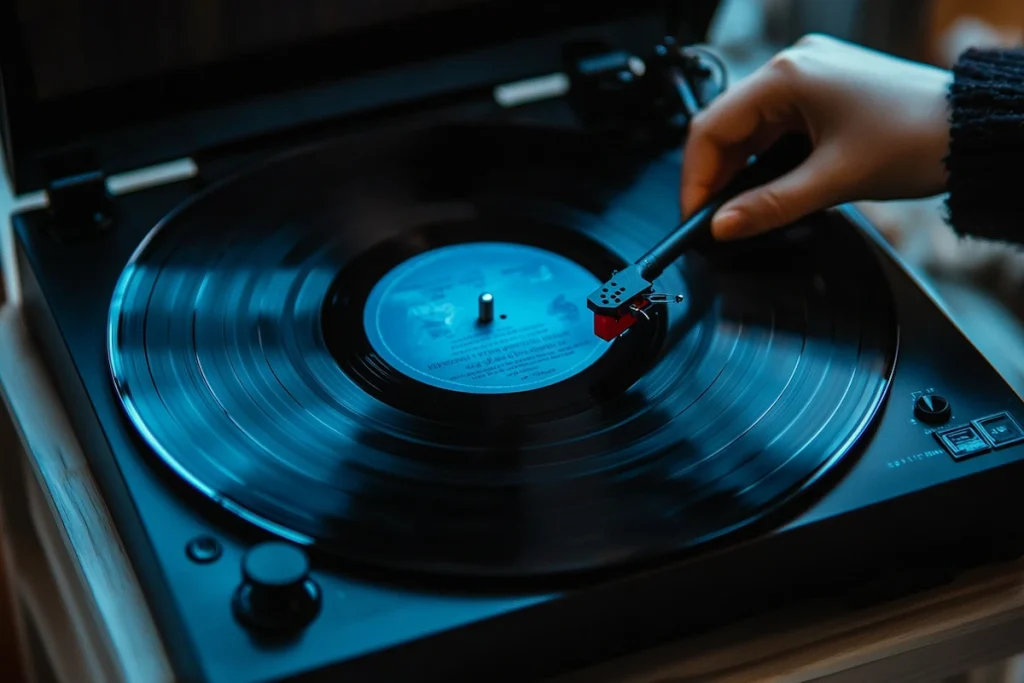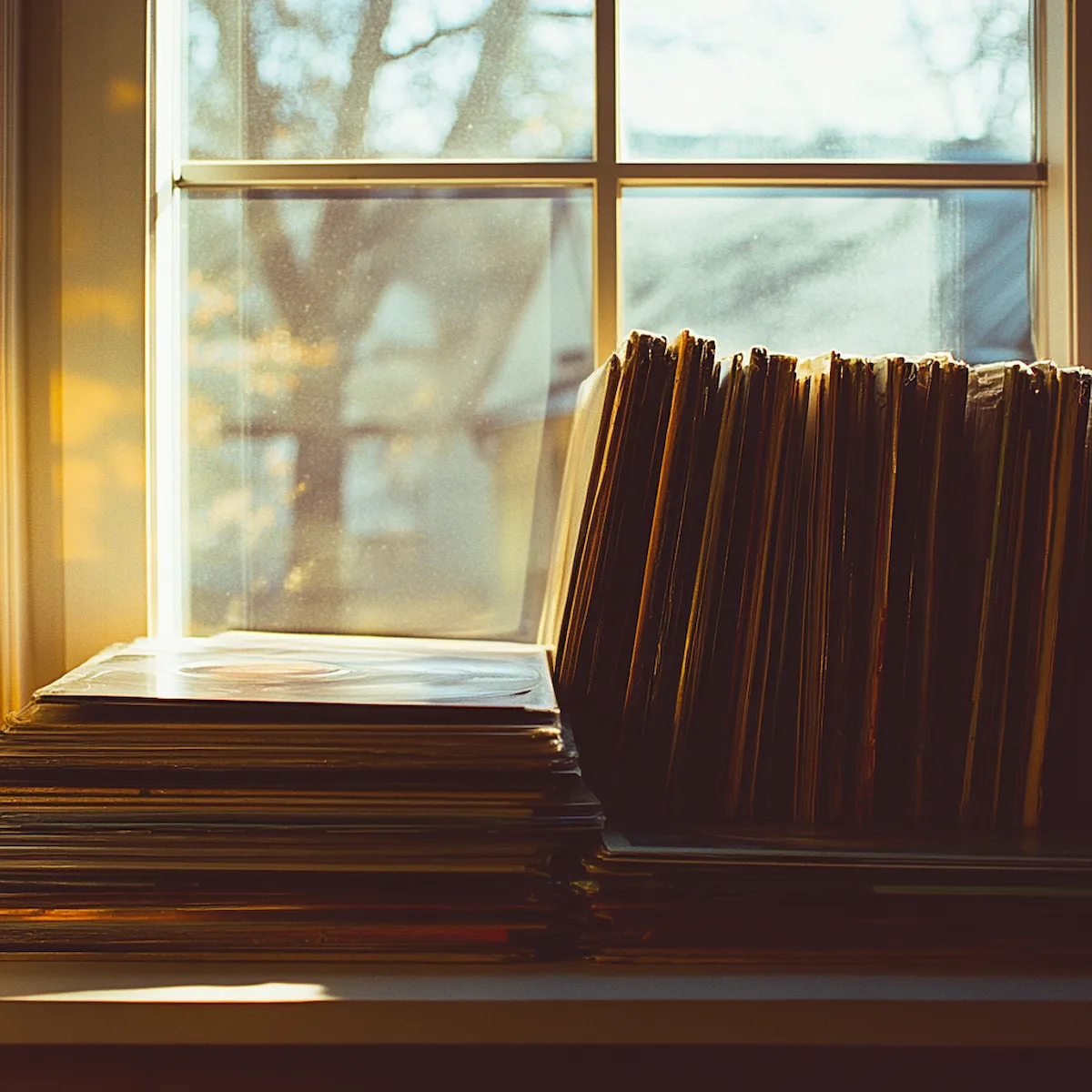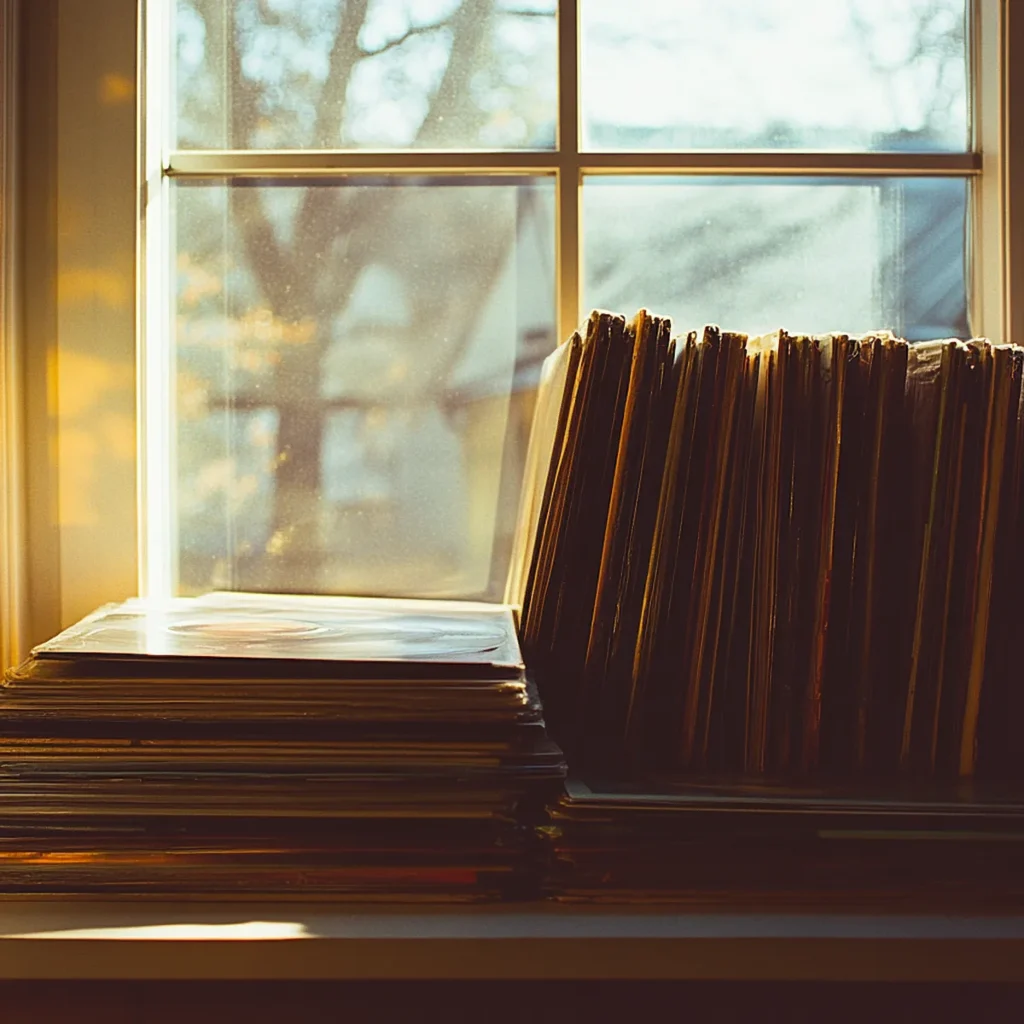Living in the Southeast or other humid regions presents unique challenges for vinyl record collectors.
States like Florida, Georgia, Texas, and Louisiana often experience humidity levels that regularly exceed 80%, putting record collections at risk.
Heat and humidity can be vinyl’s worst enemies, potentially leading to warping, mold growth, and deterioration of both records and their sleeves. The combination of high temperatures and moisture in the air creates an environment where vinyl records are especially vulnerable to damage.
Protecting Vinyl in Hot & Humid Climates
From Miami’s tropical climate to Houston’s Gulf Coast conditions, these environmental factors can significantly impact the longevity of your collection. Here’s what you should know about protecting your vinyl collection in these challenging climates, where proper storage can make the difference between preservation and deterioration.
Understanding the Risks
Heat and humidity pose significant challenges to the preservation of vinyl records. High temperatures can cause records to warp, permanently distorting their shape and sound quality. Moisture from humid conditions encourages mold growth on sleeves and labels, potentially damaging the collection’s aesthetic and structural integrity.
Paper sleeves are particularly vulnerable, deteriorating faster when exposed to prolonged humidity. High humidity levels can also contribute to the build-up of static electricity, which attracts dust and debris, further compromising the record’s playback quality. Temperature fluctuations add another layer of risk, as repeated expansion and contraction of materials can weaken the vinyl and its packaging over time.
Ideal Storage Environment
While perfect conditions aren’t always possible, aim to store your records in an environment that’s:
- Cool: Generally between 65-70°F (18-21°C)
- Dry: Relative humidity around 45-50%
- Stable: Minimal temperature and humidity fluctuations
- Dark: Away from direct sunlight
- Clean: Free from dust and debris
Practical Storage Solutions
Location Selection:
Consider storing your records in spaces that naturally stay cooler and drier, such as:
- Interior rooms away from external walls
- Upper floors (as basements often trap moisture)
- Rooms with good air circulation
- Areas away from windows and external doors
Avoid storing records in:
- Basements or crawl spaces
- Attics
- Garages
- Areas near air conditioning vents
- Spaces prone to leaks or moisture
Storage Methods
Vertical Storage:
- Store records vertically, never stacked horizontally
- Use appropriate record shelving or crates
- Leave enough space between records to prevent compression
- Ensure records stand straight, not leaning at angles
Protective Materials:
- Consider using high-quality inner sleeves
- Outer plastic sleeves can provide additional protection
- Use record mailers or boxes designed specifically for vinyl
- Keep original album covers, but supplement them with protective materials
Climate Control Strategies
Active Management:
- Use a dehumidifier in your storage area during humid months
- Consider a small fan for air circulation
- Monitor temperature and humidity with a digital gauge
- Clean records before storage to prevent trapped moisture
Supplemental Protection:
- Silica gel packets can help absorb excess moisture
- Replace worn or damaged sleeves promptly
- Keep records away from exterior walls
- Consider using moisture-absorbing products designed for media storage
Regular Maintenance
A consistent maintenance routine protects your vinyl collection from climate-related damage. Regularly inspect your records for any signs of warping or physical harm, as early detection can prevent further deterioration.
- Check the sleeves frequently for mold growth or signs of wear and tear. Sleeves are particularly vulnerable to humid conditions, so addressing issues promptly is crucial.
- Make it a habit to clean your records before and after each use. This helps remove dust, debris, and static buildup, which affect sound quality and longevity.
- Additionally, keep a close eye on the storage environment. Monitor for fluctuations in temperature and humidity, as these can significantly impact the condition of the vinyl and its packaging.
- Finally, promptly address any water or moisture issues in your storage area to ensure your collection remains safe and in optimal condition.
Common Mistakes to Avoid
Be aware of these frequent storage errors:
- Storing records in plastic bins that trap moisture
- Keeping records near heat sources or sunlight
- Overcrowding storage spaces
- Using damaged or deteriorating sleeves
- Ignoring signs of humidity damage

When Records May Be Beyond Home Care
Despite our best maintenance efforts, vinyl records can sometimes develop issues that make them less enjoyable to collect. For instance, widespread mold growth on records or sleeves can indicate that it might be time to consider selling your collection before further deterioration occurs.
- Severe warping that affects playability often points to poor storage conditions. While some collectors attempt restoration, others choose to sell their records to experienced buyers like us — we regularly evaluate vinyl in a wide range of conditions, including warped or damaged records.
- Record sleeves showing significant deterioration, such as crumbling, tearing, or extreme discoloration, can impact your vinyl’s protection and value. Rather than attempting repairs that might further compromise the integrity of your collection, consider having it professionally evaluated for sale.
If you’re struggling with persistent humidity issues in your storage area or discovering unknown substances on your records, these challenges might signal it’s time for a change. Many collectors in humid climates sell their collections rather than risk ongoing environmental damage. At DJ Records™, we understand these common issues and factor them into our evaluations when purchasing collections.
Protecting Your Collection Through Knowledge and Care
Consider starting with a small storage solution and monitoring its effectiveness before expanding. This approach allows you to perfect your storage methods based on specific conditions without risking your entire collection.
Whether you’re a seasoned collector or starting, protecting your vinyl investment from climate-related damage should be a top priority. Stay vigilant, be proactive, and adjust your storage methods to keep your records in the best possible condition.
At DJ Records™, we’ve been purchasing vinyl collections across the Southeast for years. Our team has seen firsthand how proper storage affects record condition and value, particularly in humid environments across Florida, Georgia, Texas, and beyond. If you’re looking to sell your vinyl collection and have questions about its condition due to storage conditions, feel free to contact us. We’re always happy to share our experience with fellow vinyl enthusiasts.
Contact us to learn more about selling your vinyl collection. We understand the unique challenges of maintaining records in humid climates, and we consider these factors when evaluating collections from our community of record sellers.
WE BUY OLD RECORDS!
We’ve been buying LPs, 45s, 78s & 12″ singles for well OVER 20 YEARS.
No collection is too large!









